PROFILE : MORGAN TSVANGIRAI
posted Saturday, 31 March 2007
| Profile: Morgan Tsvangirai | |||||||
Morgan Tsvangirai has risen from working in a mine to becoming one of the most important political figures in Zimbabwe - even if his dreams of becoming president remain elusive. A charismatic speaker, he is a brave man - constantly running the risk of arrest or assassination since emerging several years ago as a credible challenger to President Robert Mugabe.
As the leader of Zimbabwe's opposition, he has been called a traitor on many occasions, been brutally assaulted and been charged with treason. Just before presidential elections in 2002, a mysterious video tape emerged, which allegedly showed Mr Tsvangirai discussing how to assassinate Mr Mugabe with a Canadian consultancy, Dickens and Madson. The head of the consultancy, Ari Ben-Menashe, used to work as a lobbyist for the Zimbabwe Government and he calls Mr Tsvangirai "stupid" for even speaking to him, let alone allegedly discussing killing the president. Mr Tsvangirai was acquitted, but for 20 months he had the possibility of a death penalty hanging over his head. He was charged with treason a second time in 2003, after calling for mass protests to oust Mr Mugabe. These fizzled out under the force of police truncheons.
In September 2000, he told a rally of his Movement for Democratic Change: "If Mugabe does not go peacefully, he will be removed by force." The 52-year-old eldest son of a bricklayer says this was not a threat of armed rebellion but a warning of popular discontent. These treason charges were deemed unconstitutional but he does have a tendency to open his mouth before considering the consequences. Mr Mugabe snootily calls him an "ignoramus" because of his humble background and lack of education. Some MDC activists have accused him of not doing enough to stand up to the authorities, especially since the controversial 2002 elections, which Mr Tsvangirai says was rigged. Even some opposition activists say Mr Tsvangirai has lacked a strategic plan and has consistently been outmanoeuvred by the government. He once told me that his strategy to unseat the president was to wait while Mr Mugabe mismanaged the economy to such an extent that he was forced out of office. This long-term, passive view has, so far, steered the country away from civil war but has not seriously perturbed the authorities. The eldest of nine children, Mr Tsvangirai left school while a teenager to help support his family.
The catalyst for Mr Tsvangirai's transformation was his career in the trade unions. He used to be an official in Mr Mugabe's Zanu-PF party. After being plant foreman of the Bindura Nickel Mine for 10 years, he climbed the unionist ladder until in 1988, he was elected secretary-general of the Zimbabwe Congress of Trade Unions. As Zimbabwe's economy declined and workers' living standards plummeted, the ZCTU took an increasingly political role. When Mr Mugabe tried to raise income tax to pay pensions for veterans of the 1970s war of independence, a ZCTU-organised nationwide strike forced him to back down. For his part in defeating Mr Mugabe and the war veterans, a group of men burst into Mr Tsvangirai's office, hit him on the head with a metal bar and attempted to throw him out of his 10th floor window. This was a foretaste of the war veterans' campaign of violence, which led to the deaths of more than 100 MDC supporters. Buoyed by its initial victory, the ZCTU held further strikes against the government's "economic mismanagement". But Mr Mugabe stood firm and after intense debate, the ZCTU helped establish the MDC in September 1999.
Its nationwide structures were crucial in helping the young party campaign for the June 2000 parliamentary elections, in which it won 57 seats - the best opposition showing in the country's history. Despite its foundations in the black working class, Mr Mugabe says the MDC is a puppet of white farmers and the UK Government. And, before they lost their land, many white farmers did support, campaign for and help finance the MDC. The state-controlled media never tires of reminding voters that Mr Tsvangirai did not participate in the guerrilla war against white minority rule. As a former miner and unionist, his heart is social democratic. He used to blame many of Zimbabwe's economic woes on the IMF's structural adjustment programme. Now, he is working closely with industrialists who argue that market forces should be left to solve Zimbabwe's economic problems on their own, without minimal government interference. But Morgan Tsvangirai can at least wait before tackling the ideological contradictions within his party, as that generally only happens in government. BBC NEWS REPORT | |||||||
New Yahoo! Mail is the ultimate force in competitive emailing. Find out more at the Yahoo! Mail Championships. Plus: play games and win prizes.


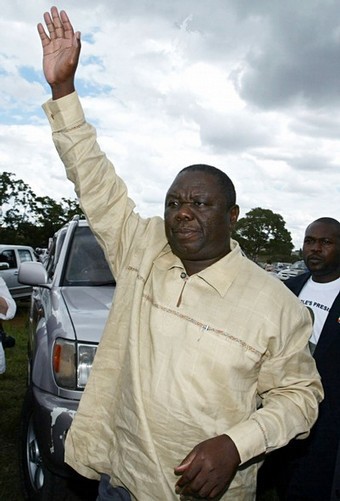
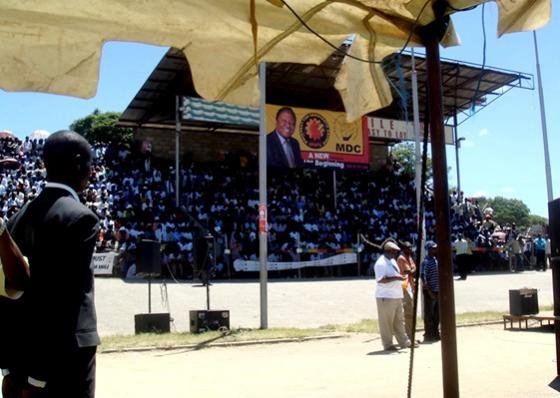
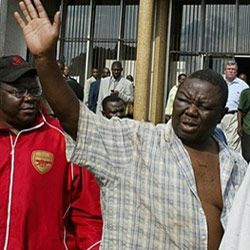
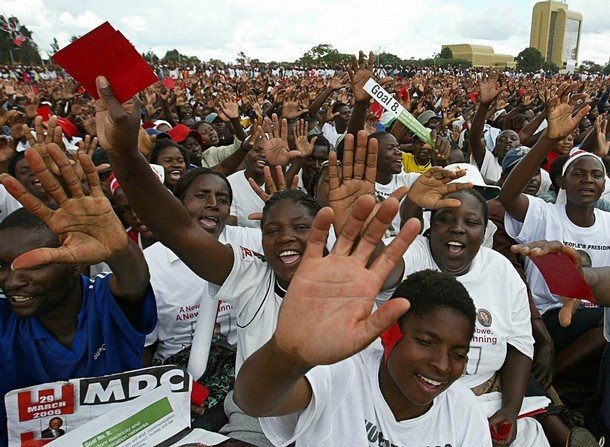











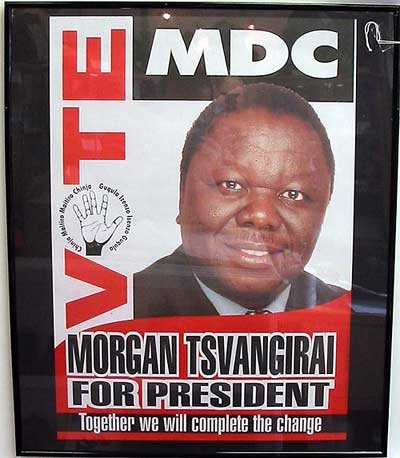
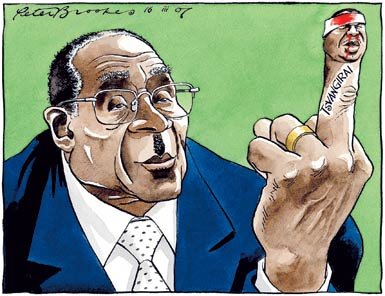





No comments:
Post a Comment